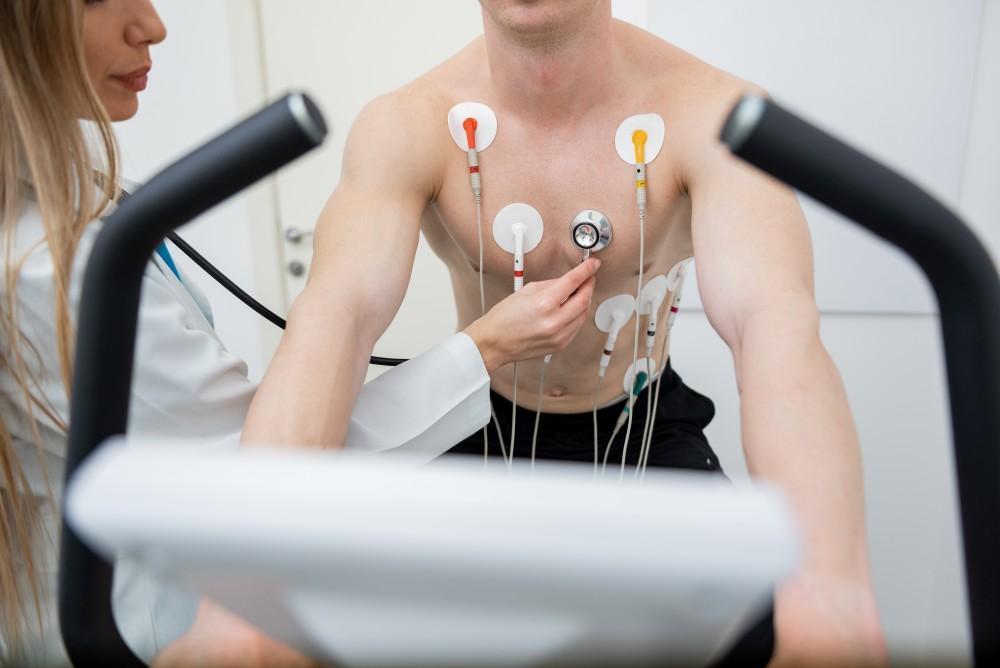
Can You Still Have High Cholesterol with a Healthy Diet?

Cholesterol 一 an often misunderstood substance 一 comes in many forms. Low-density lipoprotein (LDL) carries cholesterol particles around your body, and because these particles can accumulate and clog your arteries, LDL is known as the “bad” cholesterol. On the other hand, high-density lipoprotein (HDL) collects cholesterol particles and transports them to your liver for disposal, earning them the nickname as the “good” cholesterol.
When you hear that you have “high cholesterol,” it means that you have too much of the bad cholesterol and not enough of the good cholesterol. Although you won’t feel any different, this imbalance can increase your risk of having a heart attack or stroke.
The good news is that dietary modifications, such as reducing saturated fat intake and avoiding trans fat, can help improve your cholesterol levels. When creating cholesterol treatment plans, Dr. Henock Saint-Jaques provides guidance on dietary modifications that help support your heart health. This includes eating whole grains, plenty of fresh fruit and vegetables, healthy sources of fat, and lean protein.
But even with dietary changes, can you still have high cholesterol? Yes, you can. Let’s take a look at the five reasons why diet alone isn’t always enough to manage cholesterol levels.
5 reasons you have high cholesterol despite having a healthy diet
Eating a heart-friendly diet is important, but in some cases, it may not be enough to safely lower your cholesterol levels. That’s because your diet is only one of the many risk factors associated with high cholesterol.
You may still struggle with high cholesterol if:
1. You have genetic risk factors
Even if you follow a healthy diet, it’s possible to still have high cholesterol if you have genetic risk factors. Familial hypercholesterolemia is an inherited condition that affects how your body recycles LDL cholesterol. It affects about 1.3 million Americans.
Although you can’t avoid your genetic risk factors, you can continue to adopt healthy lifestyle habits to prevent exacerbating the condition.
2. You’re taking medications that raise your cholesterol
Certain medications can contribute to high cholesterol levels. This includes:
- Steroids
- Protease inhibitors
- Diuretics
- Beta blockers
Never stop or alter your medication schedule unless directed to do so by your prescribing provider. Some of these medications, such as beta blockers, are essential for managing other health conditions like high blood pressure. If you’re concerned about how any medications may affect your cholesterol levels, don’t hesitate to reach out to us.
3. You have hidden sources of fat in your diet
Eating a lot of saturated fat can contribute to high LDL cholesterol levels. Even if a food is labeled as “healthy,”it can contain sneaky sources of saturated fat. For example, nut butters can be a good source of protein, but not all nut butters are created equally. Some contain added oils. Instead, look for one-ingredient nut butters that list single nuts as the sole ingredient.
Other hidden sources of saturated fat include cereal, breakfast bars, instant noodle soups, and anything prepackaged.
4. You eat out a lot
Just as prepackaged foods can have hidden sources of saturated fat, so can take-out meals. Even a seemingly innocent salad can be loaded with saturated fat. Salad dressings are notorious for high sugar and high saturated fat content.
If you do eat out, choose olive oil and vinegar instead of creamy dressings.
5. You don’t exercise enough
Even if you have an impeccable diet, diet is just part of the equation. There are other factors that help you regulate your cholesterol levels. They include:
- Exercising regularly
- Maintaining a healthy weight
- Avoiding smoking
In other words, if you eat right but don’t exercise enough, you may still have high cholesterol. Exercising about 30 minutes per day (or 150 minutes per week) can help increase your HDL cholesterol and lower your LDL cholesterol.
Need help managing your cholesterol?
Because cholesterol can increase your risk of serious cardiac events, it’s important to safely lower your levels if they are high. If diet and exercise alone aren’t enough to manage high cholesterol, Dr. Saint-Jacques may recommend medication. Statins are a commonly prescribed medication, but other medications and supplements can also help manage the condition. This includes cholesterol absorption inhibitors, omega 3 fatty acid supplements, niacin, and fibrates.
If you’ve been trying to lower your cholesterol levels with diet, but aren’t seeing the results you need, our Madison Avenue office at 646-381-2181 and explore other treatment options. You can also request an appointment on our website.
You Might Also Enjoy...


What Can I Expect During a Stress Test?

Is It Possible to Lower My Blood Pressure Naturally or Do I Need Medicine?

What You Can Do Now to Prevent a Stroke Later in Life

3 Noninvasive Tests That Measure the Health of Your Heart


